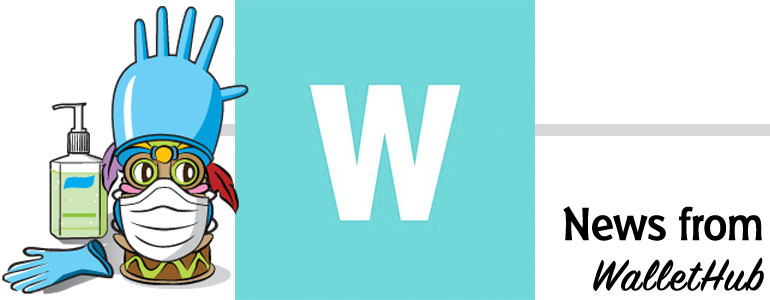
With around 67% of the population fully vaccinated against COVID-19 and new cases down a lot since the start of the year, WalletHub today released updated rankings for the Safest States During COVID-19, along with accompanying videos and audio files.
In order to find out the safest states during the COVID-19 pandemic, WalletHub compared the 50 states and the District of Columbia across five key metrics. Our data set includes the level of COVID-19 community transmission, the rates of positive testing, hospitalizations and death, as well as the share of the eligible population getting vaccinated. Below, you can see highlights from the report, along with a WalletHub Q&A.
California’s Safety During Coronavirus (1=Best; 25=Avg.):
- 17th – Vaccination Rate
- 22nd – Positive Testing Rate
- 34th – Hospitalization Rate
- 24th – Death Rate
- 14th – Level of Community Transmission
Note: Rankings are based on data available as of 12:30 p.m. ET on July 27, 2022.
To view the full report and your state’s rank, please visit: https://wallethub.com/edu/safest-states-during-covid/86567
WalletHub Q&A
Why are some state economies pushing past others in tandem with Covid safety?
“Some state economies are doing better than others about two years out from the peak of the pandemic. Much of this has to do with shutdowns and mask mandates versus staying open without as many precautions,” said Jill Gonzalez, WalletHub Analyst. “Although the safety of residents might have excelled at the time, we’re now seeing more unfilled job positions and labor shortages in those states.”
How is summer travel affecting Covid safety?
“Summer travel will affect Covid safety because as more and more countries drop travel restrictions, the international demand is picking up as well,” said Jill Gonzalez, WalletHub Analyst. “The economic impacts are good, but the decrease in Covid precautions will make it slightly less safe to travel, depending where you are. Covid is certainly still a lingering threat, but hopefully more time spend outside during the summer months will mitigate exposure from a higher number of travelers.”
Is the decision to get rid of the public transportation mask mandate good or bad for the economy?
“The decision to get rid of the public transportation mask mandate is good for the economy, according to most business and hospitality groups,” said Jill Gonzalez, WalletHub analyst. “The airline and the hospitality industries have been hurting for over two years, and the easing of Covid protocols can only help them recover. Money spent on resources and enforcement of the mask mandate can now be put to good use elsewhere. At this late of a pandemic stage, it makes sense from a health, safety and economic viewpoint.”
What impact do unvaccinated people have on the economy?
“Our economic recovery will not reach its full potential until the vast majority of people who are medically able to get vaccinated do so. The more people who decline to get vaccinated, the more risk there is to public health, especially as the new omicron COVID-19 variant spreads. The safety level of the country impacts the economy because it is tied to the lifting of restrictions and it determines how confident people are to go out and spend money,” said Jill Gonzalez, WalletHub analyst. “While we have made a lot of progress with vaccination, recent polls have found that most people who are still unvaccinated do not plan to ever get the vaccine. Investing in campaigns to convince more people to get vaccinated may lead to bigger economic returns down the line.”
Is Alaska, the state with one of the lowest death rates, one of the states that is vaccinating most?
“Despite reporting no deaths in the past week, Alaska ranks as the 21st lowest when it comes to the share of the population age 12 and over who have received at least one dose of the vaccine,” said Jill Gonzalez, WalletHub analyst. “Increasing the number of people vaccinated is essential for getting control of the pandemic.”
